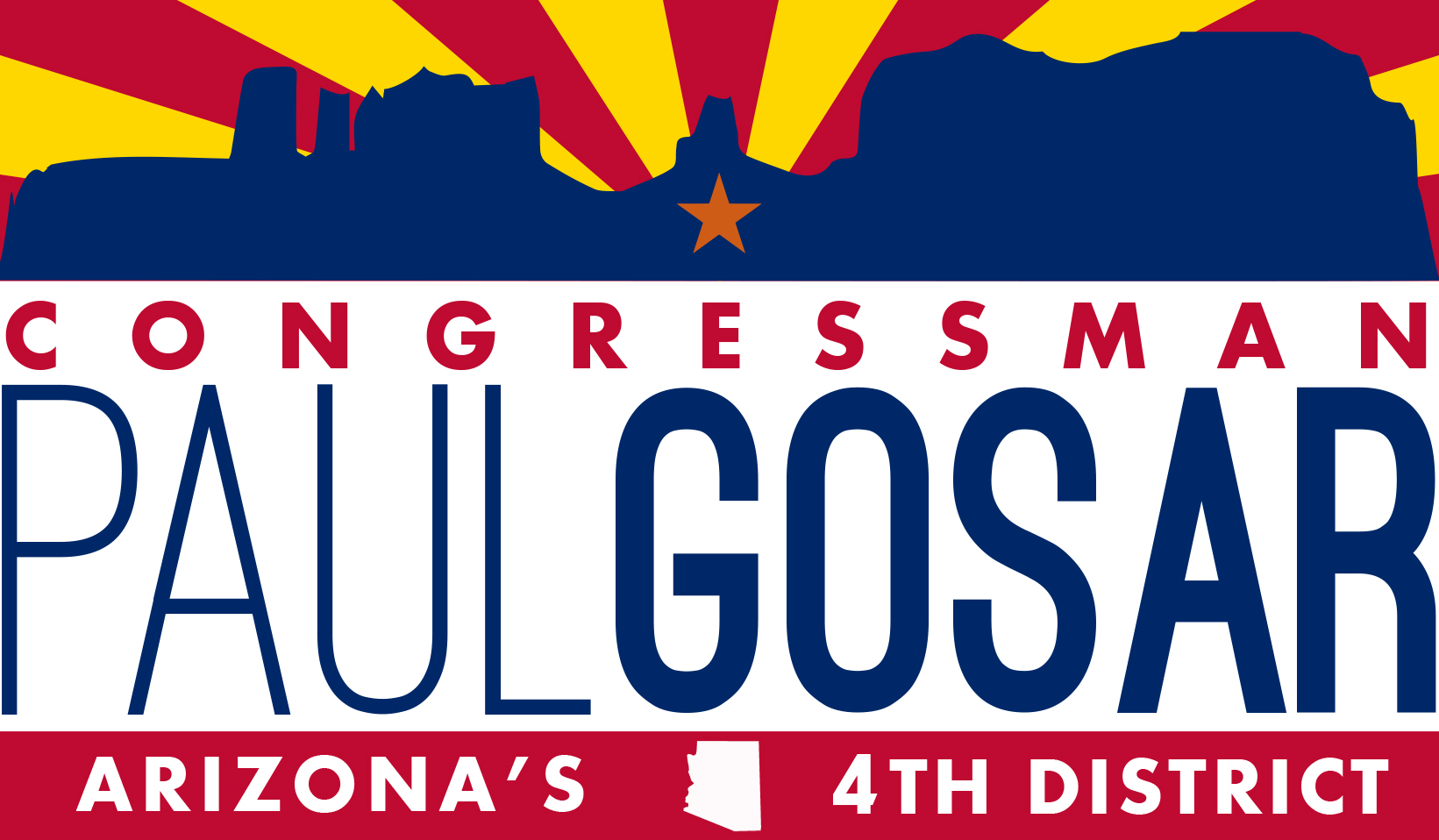|
Today, U.S. Congressman Paul A. Gosar, D.D.S. (AZ-04) released the following statement after introducing H.R. 1042, the Responsibility in Federal Contracting Act, which would require the calculation of wages for public works projects be based on actual wage statistics calculated by the Bureau of Labor Statistics (BLS):
“In order to begin chipping away at our massive $20 trillion federal debt, elected leaders must search for bold ideas to solve this spending crisis. It begins with creating a culture of eliminating federal waste, fraud and abuse, from top to bottom. A great place to start is reforming the calculation used for determining wages for public works projects which currently costs American taxpayers up to $86 billion over ten years more than it should.
“The current fundamentally flawed calculation dates back to the 1930’s and is riddled with fraud and abuse as evidenced by multiple IG and Government Accountability Office (GAO) reports. Overall, these wage rates average 22% above market wages—inflating the cost of federal construction projects, keeping employers from hiring more workers, and locking low-skilled workers out of many construction jobs for which they could otherwise be hired. This bill facilitates competition, equality, accuracy and transparency for everyone while restoring a fair wage for a fair job that is fair to the American taxpayer.”
Background:
The full text of H.R. 1042 can be found HERE.
The current process which determines the calculation of wages for public works projects is based on fundamentally flawed surveys within the Wage and Hour Division. The Responsibility in Federal Contracting Act would substitute the current wage determination with statistically sampled information from the Bureau of Labor Statistics. Research conducted by the non-partisan Congressional Budget Office estimates that upwards of $13 billion could be wasted over 10 years if Davis-Bacon is left unreformed.
Analysis by the Beacon Hill Institute at Suffolk University puts the savings at even greater, indicating that the Congressman’s bill would save $8.6 billion annually. This legislation allows these savings to be used on additional worthwhile infrastructure projects around the country.
A state-level study which examined the effect of Davis-Bacon on Arizona’s highway construction costs revealed that the Act resulted in an overall cost increase of 13%. That study can be found HERE.
The prevailing wage is so difficult to determine under the current system that the GAO has repeatedly called for its repeal since 1979. In some cities, the WHD determined wages are 75% higher than the actual prevailing wage. In other areas throughout the country they are below minimum wage and only 33% of the actual prevailing wage. Some figures have not even been updated since the 1970s.
A 2008 Department of Labor Inspector General report found that “one or more errors existed in 100 percent of the wage reports.” Another reputable economic analysis projected that reforming the current method would have saved the federal government nearly $11 billion in 2011 alone.
Seven original cosponsors joined Congressman Gosar in introducing his legislation: Representatives Scott DesJarlais, Jeff Duncan, Trent Franks, Jeb Hensarling, Tom Rice, David Schweikert and Chris Stewart.
###

|

